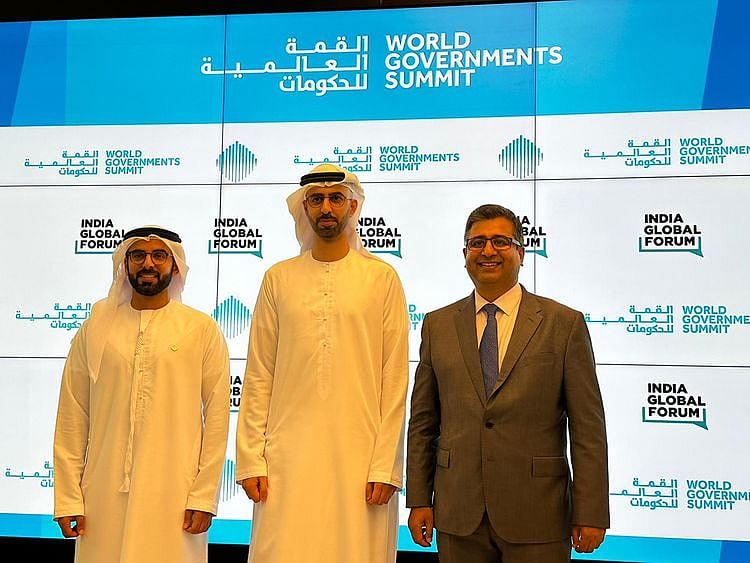The global innovation matrix: Navigating the new terrain of tech prosperity
Disruptive technologies critical for emerging economies to help meet sustainable goals

In an era of unprecedented innovation, newer frontiers in technology continue to be unleashed, setting the stage for a revolution that transcends conventional boundaries. As these frontiers expand, they not only redefine our technological landscape but also redefine the very fabric of how we perceive and interact with the world.
Consider Artificial Intelligence (AI). Over the past decade, AI has gone from a peripheral, conceptual idea to possessing powerful, real-world application. AI is now no longer the exclusive domain of developers and the Silicon Valley, but an indispensable and omnipotent part of daily life. What was once viewed as an enigmatic technology has now emerged as the most formidable tool at our disposal, one which has the potential to reshape the global economy and status quo.
A 2023 McKinsey study estimated that generative AI could add the equivalent of $2.6 to $4.4 trillion annually to global markets. The numbers are staggering, the potential limitless.
What is important however is that revolutionary, leapfrog technologies should not be the sole preserve of rich nations. Be it advanced internet connectivity, smart factories, collecting data on crops or intelligent energy distribution, disruptive technology will be pivotal in emerging economies meeting their sustainable development goals, and ensuring poverty alleviation and financial inclusion.
As a global knowledge and best experiences exchange platform, the World Governments Summit (WGS) has long believed that collaboration, dialogue, and better governance are crucial to facing the challenges of the 21st century. However, governments can’t do it alone. It must extend to various stakeholders and facilitators, like India Global Forum (IGF), who play a crucial role in shaping the future. IGF's commitment to championing the cause of emerging economies is reflected in its core mission of promoting inclusivity and equitable access to the benefits of technology. It is this shared mission that defines our partnership with them.
The WGS-IGF collaboration will not only generate a blueprint for how emerging economies can navigate the technology landscape, but also amplify the importance of global cooperation in harnessing the potential of technology such as AI for the betterment of humanity.
Technology is undoubtedly a force multiplier, the potential application of which, especially in fields such as healthcare, agriculture, education, and renewable energy affords emerging economies with the required toolkit to compete with otherwise more developed nations in a way never seen before. It can now deliver hitherto inaccessible avenues to bridging the historical advantages enjoyed by developed nations.
Indeed, we are witnessing remarkable examples of emerging economies utilising technology to further their national goals. For instance, consider the breakout success of Kenya’s fintech ecosystem. The dual application of technology and innovation has boosted financial inclusion and banking services. Platforms such as M-Pesa, a mobile money service, has enabled millions who were historically outside the purview of the formal banking sector to access financial services, make e-payments, and connect to the wider economy.
With the proliferation of smartphones, access to the internet, IoT, and the adoption of AI-driven services, the potential for innovation is vast.
What will prove to be critical is doing this within regulatory frameworks and with government oversight. Over the past few years, there has been intense debate amongst policymakers, academics, tech moguls and governments over the risks posed by technology such as artificial intelligence. While there is a general consensus accepting that risks do indeed exist, the extent of those risks continue to be polarising. That debate notwithstanding, as UAE’s Minster for Artificial Intelligence, Omar Sultan Al Olama, rightly observed at the AI Safety Summit in the UK, “The technology we build must serve humans, and not the algorithm.”
As emerging economies navigate the complexities of newer technologies, the roles played by IGF and WGS in fostering dialogue and cooperation between governments, businesses, and stakeholders become increasingly significant. By working together with stakeholders from various sectors, governments can ensure that technology serves as a force for good, benefiting people’s lives around the world and fostering sustainable economic growth that is inclusive and equitable.
- The author is the Managing Director of the World Governments Summit (www.worldgovernmentssummit.org). India Global Forum’s Middle East and Africa 2023: Unleashing Ambitions will be held from 26 – 29 Nov in Dubai. To know more, visit www.indiaglobalforum.com
Sign up for the Daily Briefing
Get the latest news and updates straight to your inbox
Network Links
GN StoreDownload our app
© Al Nisr Publishing LLC 2025. All rights reserved.